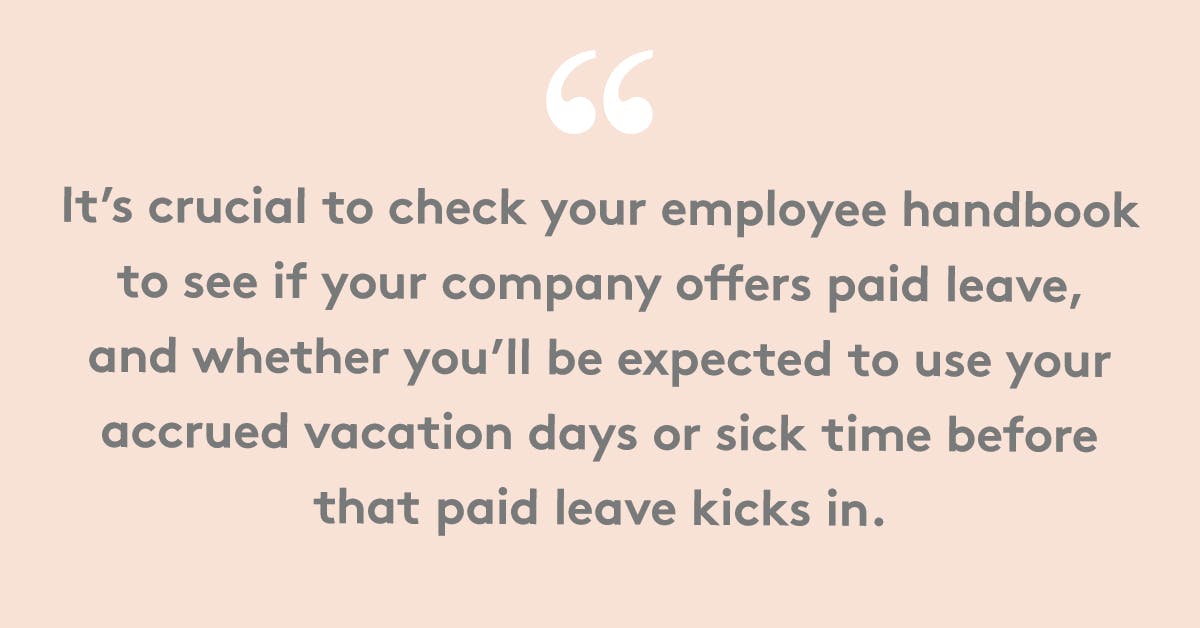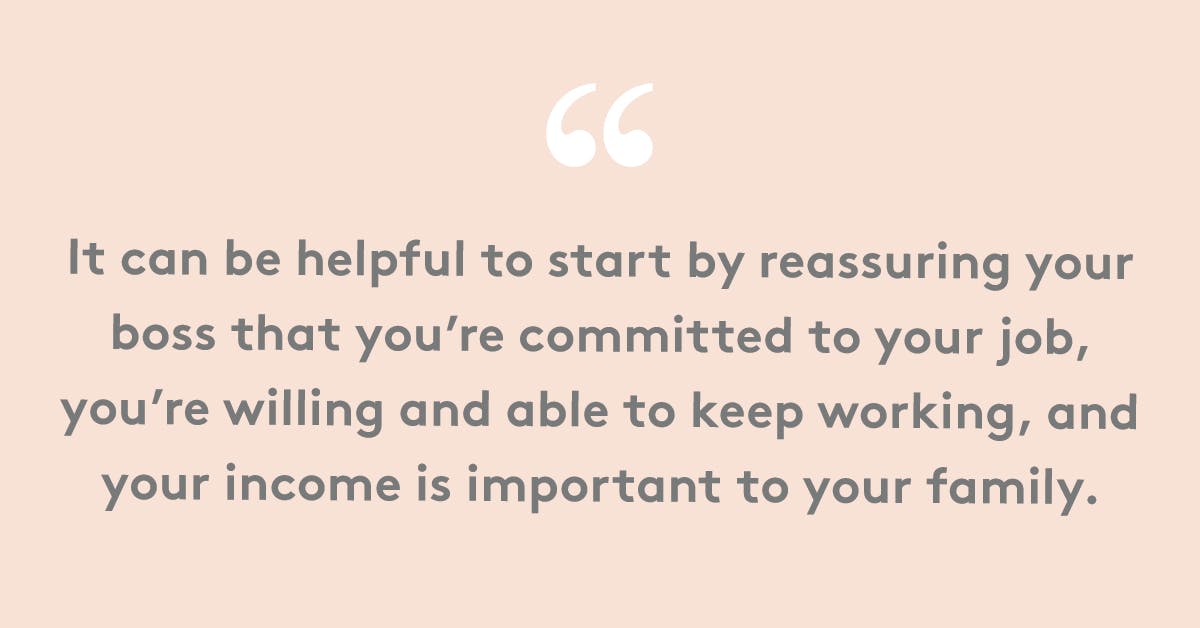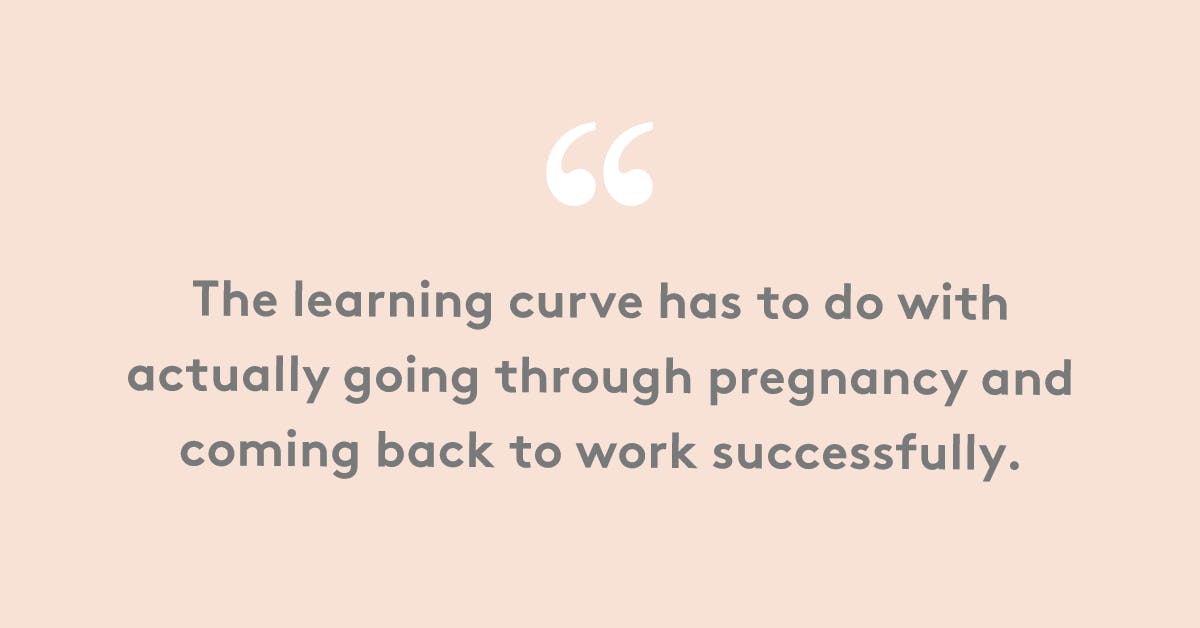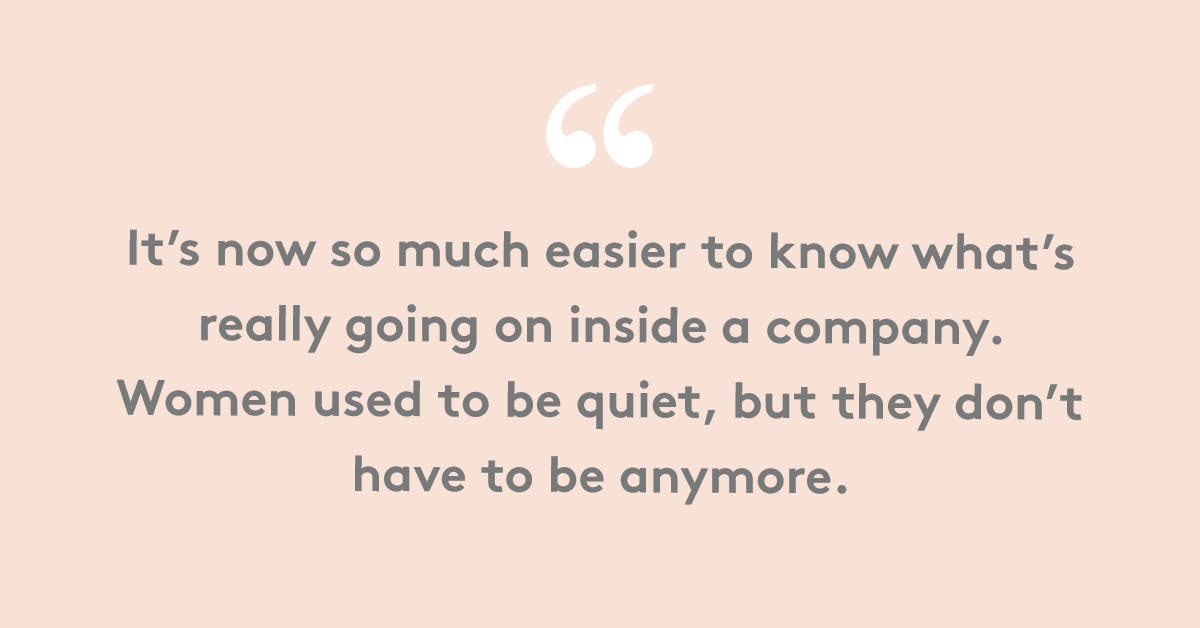May 8, 2018
In Pursuit of: Advocating For Your Parental Leave

One mom says: Where I work, I had to exhaust all my sick leave before any maternity leave pay would kick in. I had a preemie and needed extra time off. That means those extra days were unpaid. Not to mention, when I went back to work, I had to take days off for my daughter to go to her many appointments due to her prematurityand those days were without pay because I had to use all my sick time for maternity leave. It was brutal. Emily H.
Word of advice: Do your research.

The first step should always be learning what your rights are. If covered by the Family Medical Leave Act (FMLA), a parent of any gender is entitled to take up to 12 unpaid, job-protected weeks to bond with a new child after birth, foster care, or adoption. The key is if you are covered. Three factors must be true in order to get coverage:
- You work for an employer that has at least 50 employees within a 75-mile radius of where you work;
- Youve worked for that employer for at least 12 months;
- And, finally, youve worked for that employer at least 1,250 hours in the last year, which means many part timers are left out.
To further complicate things, each state has its own set of regulations. Some, like California, New Jersey, New York, and Rhode Island (and soon Washington and the District of Columbia), have stepped up by implementing laws that give most people who work in those states the right to receive paid leave. Others, not so much. Find out how your state measures up here.
In general, you don't necessarily have a right to get the exact work arrangement you want, even if it would be really helpful. And you may even have to jump through some hoops, says Molly Weston Williamson, staff attorney at A Better Balance, a work and family legal center. Thats why its also crucial to check your employee handbook to see if your company offers paid leave, and whether youll be expected to use your accrued vacation days or sick time before that paid leave kicks in.
One mom says: Thanks to my maternity leave under Deloittes expanded Family Leave Program, I had the ability to flex my schedule and workload after returning, without being made to feel like an outlier or someone who needed to be treated with special handling. In 2012 after my first son was born, I returned to the office on a four-day compressed schedule, working my core hours Monday through Thursday from 7 a.m. to 5 p.m. This gave me evenings with my baby, but also every Friday off to be a stay-at-home mom one day a week. I still continue that schedule to this day and sometimes it works more smoothly than others depending on my other responsibilities, but that simple change has given me the control I need to feel fulfilled both as a mother and as a professional. Jessica Muglia
Word of advice: Open a conversation.

Well in advance of having your baby, you should meet with your manager and human resources department to discuss any terms or negotiations of your maternity leave. If youre requesting additional time off or some type of altered work schedule once you return, it can be helpful to start by reassuring your boss that youre committed to your job, youre willing and able to keep working, and your income is important to your family. Say, I want to figure out a way that is going to work for everyone, advises Williamson, who suggests to be prepared to be flexible. Still, you may experience resistance and thats when you get creative: Frame your argument so that whats best for you also is seen as being good for the company. I have a friend who works for an employer that sells flowers and she turned her request for flex time into an opportunity to solidify the companys branding, says Julia Beck, founder of Its Working Project, an organization committed to helping the private sector bring new parents back to work with ease. So she broke it down for them like this: People often send flowers to women. We want our company to be known for treating women well. I want to be the example of the companys commitment to women.
One mom says: I pushed hard to work remotely two days a week. Mind you, I had to write a proposal and prove to the CEO why I deserved to do this. She granted the arrangement, but only for six months. I returned to work in November, and in January, received the worst review Ive ever gotten in my careerit was riddled with incorrect information. I consulted with an employment attorney, who read the review and gave me a list of bullet points to more or less threaten a lawsuit if the review was not thrown out and rewritten. Once the CEO and COO heard the word lawyer, they rewrote it, but continued to make my life miserable. By the spring, I started searching for a new job, and the perfect opportunity presented itself in June. I had my second son at my current company with little issue. Laurie E.
Word of advice: Seek out a mom mentor.

If you know a coworker has already requested to work remotely twice a week, youd be wise to ask her what roadblocks she faced so you can try to maneuver around them, says Beck. And, without a doubt, she would already understand your office culture. The learning curve has to do with actually going through pregnancy and coming back to work successfully. Success could mean getting home in time for a Mommy and Me class or being able to give your kid a bath before dinner, explains Beck. Meanwhile, there are many human resource departments, though certainly not all, that tend to view success in terms of compliance to the laws. Those are two very different ways of thinking and both are important. But the best information you will ever get is from somebody who has gone through it before you, says Beck.
One mom says: I was on a team hoping to apply for a higher position. The manager told me not to (even though I was completely qualified) as I was eight months pregnant and they wanted someone to start right away. Lauren E.
Word of advice: Take really good notes.

Every time youre faced with a situation that doesnt sit well with youlike that offhand remark your manager made about your Mommy brain or being passed over for a project you wouldve ordinarily spearheadedstart writing it down. Record what happened along with the exact names of those involved, date, and time, and email it to yourself from a personal account to timestamp exactly when the event occurred, recommends Williamson. If the situation escalates and you choose to take action, you'll have all of that information ready to go, says Williamson. But because workplace situations regarding pregnancy are hardly ever cut and dry, it may be wise to speak to an expert to get advice specifically targeted to you. A Better Balance offers a free legal hotline.
One mom says: I got an unexpected wonderful letter from my employer stating that they've changed their policy and now my maternity leave was extended an extra six weeks! I can't tell you how much that changed my life. And I received full pay for that time off. That bonding experience with my baby in the first several months was so important and he is a thriving, smart, wonderful two-year-old now. Laura V.
Word of advice: Pay it forward.

It's always extremely valuable when women share their stories. Organizations like Its Working Project, A Better Balance, MomsRising, or the National Partnership for Women and Families are always looking for people who are willing to tell their stories to make a difference. It can be scary to come forward, says Williamson. But your first priority should always be making sure that you and your family are getting what you need, and that you're not putting yourself in a situation in which youre uncomfortable, says Williamson. If thats the case, there may be other ways to help, whether through sharing your experience anonymously or by signing a petition. And dont underestimate the power of posting a review of your employerboth the positive and the negativeon sites like Glassdoor and FairyGodboss. Its now so much easier to know what's really going on inside a company, says Beck. Women used to be quiet, but they don't have to be anymore.